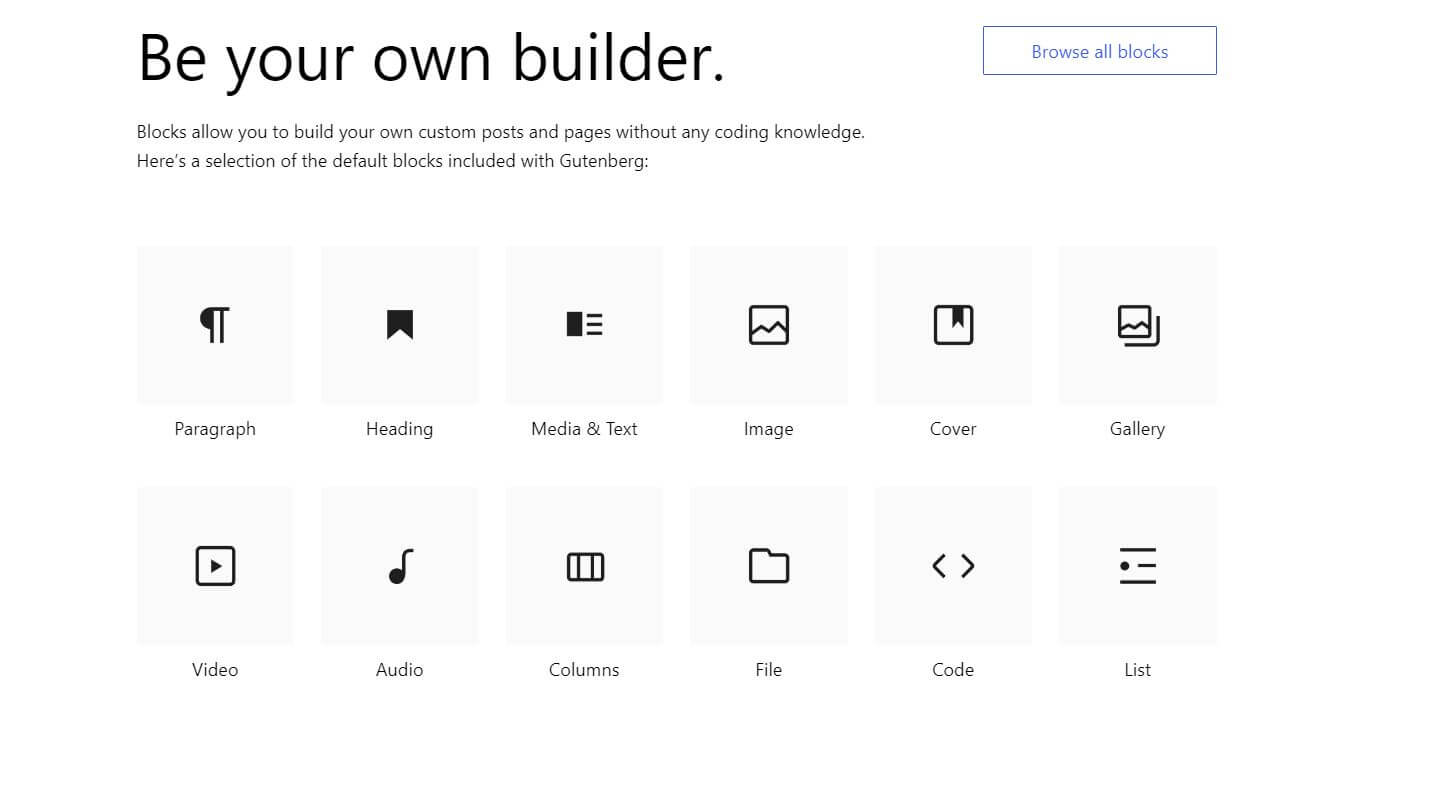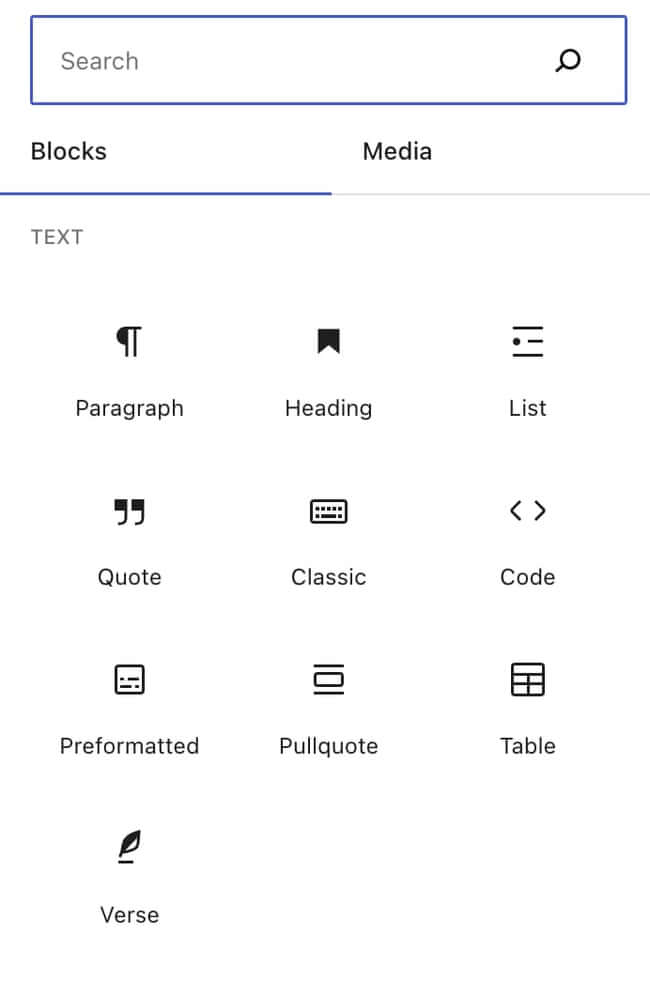When comparing Elementor and Gutenberg, individuals hold various opinions on which option is superior. In essence, making a choice between Elementor and Gutenberg for one's website can require some effort to cater to its distinct requirements.

In this article, the you will be guided through a comprehensive comparison of Elementor and Gutenberg. To commence, both Elementor and Gutenberg will be introduced. Following that, we will delve into their distinctions, similarities, and how they measure up against each other.
Elementor Overview
Elementor stands out as a well-liked plugin for crafting eye-catching and functional WordPress websites. It boasts a multitude of features that empower users to create advanced sites, all while maintaining a reputation for user-friendliness. Thanks to Elementor, individuals can build exceptional websites without the need to write a single line of code. The success of this page builder is underscored by the fact that more than five million WordPress sites rely on Elementor to bring their visions to life.
One key reason for Elementor's popularity is its drag-and-drop editor, which proves especially beneficial for those who prefer a visual approach to page design. And, let's not forget to mention that the basic version of Elementor is available for free.
Create Amazing Websites
With the best free page builder Elementor
Start NowSome of the most popular uses of Elementor involve formatting blog posts and website pages, but it also allows users to completely redesign their WordPress themes.

Here are the key reasons why people appreciate the Elementor plugin:
- Elementor is a drag-and-drop tool, making it user-friendly for those who want to visualize their page's appearance.
- You don't need coding skills to use Elementor.
- You can effortlessly incorporate various attractive design elements like carousels and more.
- There are ready-made templates available to simplify the starting process.
- The page builder offers a variety of widgets.
- It's highly customizable, allowing users to unleash their creativity in designing with Elementor.
Here is an article on Elementor vs other page builder. If you want to know more about elementor functionality, check our Elementor Tutorial Library.
Gutenberg Overview
Gutenberg serves as the standard block editor for the WordPress platform. It was first introduced in 2018 and has since become the default editor for WordPress (though you can opt for a different editor if you wish). As users explore themes for their WordPress sites, some may note that they are compatible with Gutenberg.
Gutenberg represents a positive step towards making WordPress website creation more user-friendly, especially for those without extensive technical skills. With the Gutenberg editor, you can easily place elements on your page by dragging and dropping, rather than having to write code. Once you've positioned your blocks as desired, you can proceed with customizing your website.

The Gutenberg editor offers a variety of 'blocks' like text, images, headings, and video. When someone wants to add one to their website, it's as easy as inserting a block.
There are several key reasons why users find the Gutenberg editor appealing:
- It's user-friendly, suitable for both beginners and experts. Gutenberg's block-based system helps keep your web page organized.
- It provides a diverse selection of blocks without overwhelming the user.
- It's the default editor for WordPress, and it's completely free to use.
- The editor includes various formatting features without making things too complicated.
- Since it's part of the WordPress software, it seamlessly integrates with other plugins and themes.
- Users can utilize pre-made templates and patterns if they need help starting.
- You don't need coding skills to use Gutenberg.
- The editor is responsive and mobile-friendly, which is crucial for ensuring your website's success, provided you also choose a responsive theme.
Elementor vs Gutenberg Comparison
Now that you've seen the differences between Elementor and Gutenberg, here's how we'll compare the two. Let's examine the ease of use, responsiveness, ability to preview, speed of the website, and cost.
Ease of use
First, let's assess how easy Elementor and Gutenberg are to use. In this regard, Gutenberg has a notable advantage. Here's the reason.
Since Gutenberg serves as the default editor for WordPress, it seamlessly cooperates with any themes or plugins you add. There's no need to fret about compatibility issues. Furthermore, its user interface blends naturally with your WordPress site's admin panel.
In contrast, Elementor is a plugin that's not part of the WordPress core, which means it operates on a different layer. Consequently, it boasts a distinct interface, which may require a bit of learning, especially if you don't consider yourself tech-savvy.
It's important to note that the Elementor team has worked diligently to create an intuitive user interface, making it user-friendly. Nevertheless, if you seek an editor that you can easily grasp right from the start, sticking with Gutenberg is the way to go.
Responsiveness
The good news is that Gutenberg and Elementor were both designed with responsive design in mind. No matter which one a person is using, their website will look fantastic on mobile devices. However, when working with Gutenberg, it's essential to remember the following:
Gutenberg serves as the default content editor for WordPress. While it can function with any theme, it's crucial to ensure that the theme chosen is responsive and mobile-friendly. Don't worry; there are plenty of options that not only look great but also work perfectly.
If, by chance, a theme is chosen that isn't mobile-friendly, using the Gutenberg editor won't magically make it responsive. So, it's important to thoroughly research the theme before installing it.
Previews
Both Elementor and Gutenberg provide a comprehensive preview of the final page appearance during the editing process. Nevertheless, with Gutenberg, users need to click the 'preview' button to view the 'final' result before publishing, as the editor displays text blocks without applying the chosen theme.
In contrast, Elementor offers an immediate 'preview' within the editing interface. This feature, while not necessarily superior, offers a different approach. If the constant display of page updates is essential to the user, Elementor could be their preferred choice.
Website speed
In considering a website's performance, the importance of quick loading for retaining visitors is widely recognized. Therefore, when deciding which builder to utilize, one should prioritize page speed.
Gutenberg, owing to its simpler design, stands out for its efficiency and faster loading times. If prioritizing fast page loading is your primary concern, Gutenberg is the top choice. This is partly due to its lean feature set, which avoids burdening your site and slowing down load times.
Although Elementor is not a sluggish page builder by any means and is still relatively speedy compared to many competitors, it falls behind Gutenberg in terms of page speed.
Pricing
Gutenberg earns praise for its affordability, as it is completely free for users. One will never need to spend a single cent to utilize this editor.
On the contrary, Elementor provides options for both free and paid versions. In certain situations, the free edition of Elementor may suffice for one's requirements. Nevertheless, an upgrade could become essential if one desires to fully exploit the capabilities of this plugin.

Which One Should You Use?
In the grand scheme of things, Gutenberg emerges as the superior choice for a variety of reasons. Firstly, it's speedy, cost-free, responsive, and user-friendly. Not to mention, since it's seamlessly integrated into WordPress, there's no need to fret about compatibility issues with your theme or other plugins. Below, you'll find examples of the various blocks you can incorporate with the Gutenberg editor.

Moreover, the simplicity of Gutenberg is truly commendable. It's a breeze to learn, making it accessible even to beginners embarking on their website creation journey. Another reason Gutenberg takes the lead is its provision of pre-designed patterns and templates, which serve as valuable starting points for those in need of guidance.
However, this doesn't imply that Elementor doesn't have its time and place. If you're in the process of constructing a highly intricate website, Elementor might be the tool you're looking for.
Elementor truly shines when you're aiming to craft a unique website that isn't tied to a specific theme. The plugin is largely self-contained, allowing you to directly edit certain design elements while creating your content.
Final Words
The choice between Gutenberg and Elementor ultimately hinges on your specific website needs and your comfort level with different features. Gutenberg offers simplicity, speed, and seamless integration with WordPress for straightforward projects, while Elementor shines when crafting intricate, unique designs. Both have their merits, making them valuable tools in the world of web design. So, whether you opt for Gutenberg's ease of use or Elementor's advanced capabilities, the key is to select the right tool that aligns with your project goals and expertise. Happy website building!





